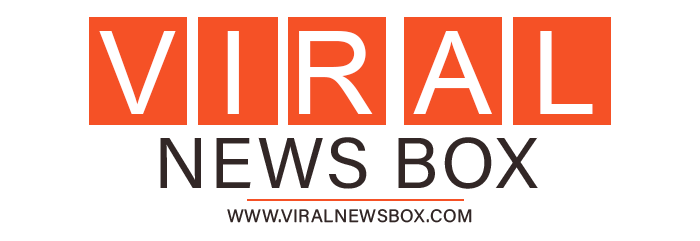Quantum Computing, June 18, 2024.
Google has boldly announced a call for suggestions to improve the field of distributed quantum computing, further pushing the boundaries of computer technology. The tech behemoth is seeking submissions from academic institutions, researchers, and inventors in an effort to support innovations that have the potential to completely transform the way that humans process information.

Google is Looking for Ideas to Expand the Potential of Distributed Quantum Computing (Image Credit : Keyweo)
Quantum Computing
The cutting-edge field of quantum computing research has the potential to resolve challenging issues that are beyond the capabilities of conventional computers at this time. Quantum computers, which use the laws of quantum physics to execute numerous calculations at once, have the potential to revolutionize a variety of fields, including materials research and encryption. Google’s most recent project is centered on distributed quantum computing, which is the cooperative use of a network of quantum computers to solve problems more quickly.
Why Is Distributed Quantum Computing Useful?
Conventional quantum computing, although immensely potent, confronts several obstacles. The fundamental building blocks of quantum information are known as qubits. They are quite sensitive and prone to mistakes caused by noise in the surrounding environment and hardware flaws. The difficulty of preserving the coherence and entanglement of qubits, which are essential for quantum processing, rises with the number of qubits.
One possible way to address these issues is through distributed quantum computing. Through interconnecting several smaller quantum computers, also known as nodes, scientists can establish a network that functions similarly to a single, more potent quantum computer. This method not only improves scalability, which makes it simpler to add more qubits as technology advances, but it also helps reduce the faults that come with large-scale quantum systems.
The Vision of Google
Google has always been at the forefront of research into quantum computing. A major turning point in the research was reached in 2019 when they announced that they had achieved “quantum supremacy,” which is the state in which a quantum computer outperformed the greatest classical computers at a task by a large margin. Google now hopes to expand its leadership in distributed quantum computing by encouraging cooperation and creativity through this request for proposals.
Director of Engineering at Google AI Quantum Hartmut Neven stated, “We believe that distributed systems are where quantum computing is going to be used in the future.” “By bringing together the brightest minds in the field, we can overcome the current limitations and unlock the full potential of quantum technology.”
What Google Is Seeking
Although there are many other kinds of ideas that Google is interested in, the following areas are of particular interest:
Quantum networking: Error-correction techniques and quantum communication protocols used to connect quantum computers.
Also Read: Top Speed of a Kawasaki Ninja 300 Coming With New Colors in 2024 Model
The creation of algorithms that can benefit from distributed quantum systems, especially those that outperform conventional algorithms in solving real-world issues.
Hardware innovations include techniques for combining several nodes into a coherent network and developments in quantum hardware that enhance the efficiency and dependability of quantum nodes.
Solutions for Scalability: Methods for raising the size of distributed quantum systems so that they can manage more complicated calculations when more nodes are added.
The Procedure for Proposals
Google is requesting comprehensive proposals from researchers detailing their concepts and strategies for achieving their objectives. Projects that can show quantifiable development in a fair amount of time and that have a clear path to practical execution are of particular interest to the organization.
Also Read : George Strait Breaks the Attendance Record, With the largest concert ever held in the United States.
The chance to work with Google’s team of quantum experts, as well as access to the company’s cutting-edge quantum hardware and software, are among the benefits awarded to successful applicants. Google also intends to regularly organize conferences and workshops to encourage participants’ cooperation and information sharing.
The Effect on the Sector
Distributed quantum computing has enormous promise. Quantum computers have the potential to break codes that are now unbreakable in disciplines like cryptography, setting new benchmarks for data security. They could replicate intricate molecular structures in materials science with previously unheard-of accuracy, opening the door to novel materials and drugs. Quantum algorithms have the potential to identify optimal solutions in optimization problems far faster than traditional approaches, which is important for businesses such as banking and transportation.
Also Read : 2024 Tony Awards: The Entire Winners List
Furthermore, the advancement of distributed quantum computing may make quantum technology more accessible to all. Currently, only a small number of large firms and research organizations can afford to investigate this technology due to the enormous cost and technological complexity involved in creating and maintaining quantum computers. These obstacles might be lessened by a dispersed strategy, allowing more organizations to take part in quantum research and development.
Gazing Forward
The endeavor by Google is a big step toward utilizing quantum computing’s potential. The business aims to speed distributed quantum system research and move practical quantum computing closer to reality by promoting creativity and teamwork.
This call for proposals offers academics and innovators a fantastic opportunity to contribute to a topic that has the potential to drastically alter our planet. The future of computing will be greatly influenced by the cooperative efforts sparked by programs such as Google’s, as quantum technology develops.
Thus, now is the moment to come forward and contribute to pushing the envelope of what is feasible if you have a ground-breaking concept for quantum computing. Although Google has big plans for a distributed quantum future, these goals are doable with the appropriate thinking and teamwork.

